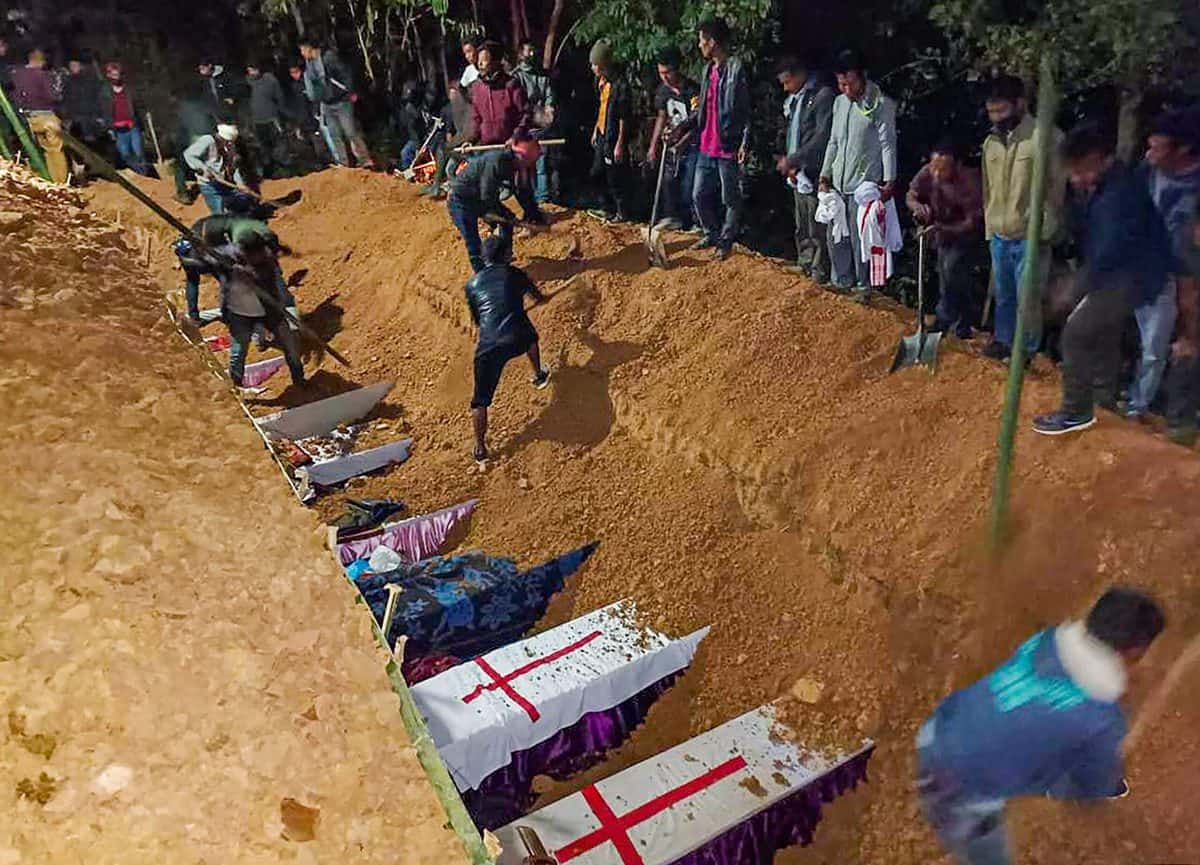
By Arun Joshi
Larger issues are involved in the killing of 13 civilians in Nagaland by the armed force last Saturday. Home Minister Amit Shah has regretted the incident and called it a case of mistaken identity, as there was a gap between the inputs and the situation on the ground. He also advised that the probe ordered into the killings be completed to pin the responsibility. That, for him, as the Home Minister and in charge of the Northeast, is the best thing to have done because instant conclusions and action thereof might run the risk of inviting long-term consequences. Everything deserves to be scrutinized minutely to bring out the truth about this particular incident, and it should also form the basis for answering questions, why did it happen and what made the forces to act in the manner they did. Was there a compulsion to do so or other reasons that led to this tragedy.
While all these questions need to be addressed, but there is a firm conclusion, whatever might have been the circumstances and the situation, there is absolutely no justification for what happened in Nagaland. And no attempt should be made to find reasons to justify, even though it is a fact that the conflict zones are prone to such mishaps of lethal nature resulting in loss of lives of innocent civilians. But, in this tragedy, there also is an occasion to hold a thorough probe to get to bottom of the things which have brought out fresh fault lines in the relationship between the civilians and the armed forces, and the impact that these would have within Nagaland and rest of the country, particularly in the conflict areas, where army enjoys the immunity under the Armed Forces Special Powers Act. It would be a mistake to judge this issue settling down within the borders, as there are forces across the borders – not only in the east but also the west and north – looking for undermining India’s national security by exploiting the internal situations.
All this points out one basic issue: how to handle the critical situations in the conflict areas, where AFSPA acts as a shield to the army personnel. The law enables the army and other wings of the security forces to act against the terrorists and their harbourers without inviting any action against them if things go wrong. Essentially, it is a cover to the security forces against all their acts of omission and commission in the counter-terrorism operations. The necessity of this law arises only when the normal political and law enforcing system collapses. If not, then it should wake the policymakers to have a rethink on the AFSPA. Such laws cannot exist in perpetuity. The lack of political will and all those in the system shying away from adopting any bold approach vis-à-vis AFSPA means captivity to thinking that things will not change ever.
This also reflects that the governments concerned believe that ordinary laws are not working, and leave the matters solely in the hands of forces. This leads to the cycle and recycling of the mistrust between the affected population and the security setup. This is a highly sensitive matter, as it reflects that ordinary laws fail to deter near-dangerous situations.
For all the challenging situations, whether arising out of law-and-order problems or any other reason, the normal laws should be adhered to. The prolonged cover of AFSPA to the security forces, as and when the things falter, security forces get a bad name, as it has happened with the tragic incident on Saturday.
A deeper study needs to be done whether the permanence of AFSPA is a perfect answer to the problems in conflict areas, then, it also begets a question that why the insurgencies were still kicking and alive in some of the areas, particularly in Northeast and Jammu and Kashmir? This is an important national security issue There is absolutely nothing wrong in revisiting the need for the AFSPA.
This is important to make security forces to act with extreme caution and care in the civilian areas.

